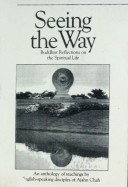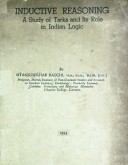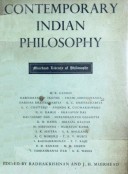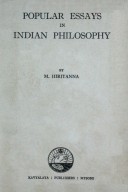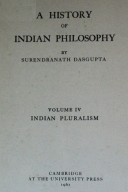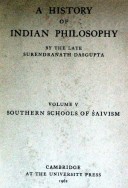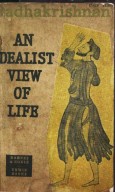Tìm Sách
Sách tiếng Anh-English >> Seeing The Way
Thông tin tra cứu
- Tên sách : Seeing The Way
- Tác giả : Ajahn Chah
- Dịch giả :
- Ngôn ngữ : Anh
- Số trang : 216
- Nhà xuất bản : Amaravati Publications-England
- Năm xuất bản : 1989
- Phân loại : Sách tiếng Anh-English
- MCB : 12100000011629
- OPAC :
- Tóm tắt :
CONTENTS
Dedication
Introduction
A Short Biography of Ajahn Chah
Venerable Ajahn Chah Message From Thailand
Venerable Ajahn Chah What Is Contemplation?
Venerable Ajabn Sumedho The Way It Is
Venerable Santtidao Love and Attachment
Venerable Pabbakaro On Humdity
Venerable Khemadhammo Responding to Pain
Venerable Jagaro Happiness
Venerable Pasanno What Is Important
Venerable A nando Kindness and. Insight
Venerable Tiradhamma Joy in Spiritual Practice
Venerable Viradhammo So What
Venerable Braktnavamso Becoming Enlightened
Venerable Gavesako Talk On Suffering
Venerable Suciuo Kwan Yin and the Noble Elephant
Venerable Munindo The Work of Awareness
Venerable Puriso Seeing in the Light of Dhamma
Venerable Kittisaro Contemplation and Action
Venerable Bodhipalo Walking Through India
Venerable Amaro No Empty Ideal
Venerable Thanavaro Generating Blessings
Venerable Jayasaro Luang Pot’s Way
Venerable Vajiro Dana
Venerable Kittisaro Epilogue: True Friends
Photographs
Glossary
DEDICATION
Yo Dhammam desesi: adhikalyanam,
majjhekalyanami pariyosanakaiyánam.
The Buddha has pointed out the way:
beautiful in the beginning, beautiful in the middle,
and beautiful in the end.
Each morning in Theravada Buddhist monasteries around the world, the above stanza is chanted as part of ‘The Homage to the Triple Gem’. It could just as well be said of the teaching example of Meditation Master. The Venerable Ajahn Chah.
Ajahn Chah, or Luang Pot as his disciples called him, possessed that uniquely beautiful quality of being: a quality visible only to a heart seeking The Way of Truth.
‘Beautiful in the beginning’, in Ajahn Chah’s case, was his commitment to the life of a renunciant monk (dhutanga bhikkhu). He cultivated impeccable discipline and displayed consistent, daring effort to confront all situations, especially those from which he was inclined to turn away. He gave himself completely to the training and eventually the Way became clear.
‘Beautiful in the middle’ was the selfless sharing of his realization with all who came to be near him. Regardless of personal discomfort, he ceaselessly offered his body, speech and mind to assist his disciples, lay and ordained alike, to enter the Way. He said of his own teaching method, that it is the example that counts — not just the words. Those who were able to spend time with him know full well that-this is so.
And ‘beautiful in the end’ remains. It is that radiant confidence of heart in thousands of individuals who now walk the Way; that verified faith which most profoundly expresses Dhammam Saranam Qacchami – ‘I go for refuge to the Truth of the Way Things Are.’ Without having seen an example of the Way in another, such awakening of confidence might not have taken place; hence it is said. ’No gift excels the gift of Dhamma.’ No amount of words can possibly honour a gift as precious as the Way of Truth itself. Lives lived in harmony with this Ancient Way, however, may do so.
This book is about a community of people endeavouring to do justice to the gift they have received. More precisely, it is a collection of transcribed talks, letters and essays offered by disciples of Luang For Chah, who are now living at various monasteries around the world. These teachings have been ‘ gathered specifically for this publication. It seemed appropriate that a book published in the West to honour the Venerable Ajahn Chah’s life should reflect the results of his years of teaching. These are some of the fruits of what he spent his life nurturing.
Although some editing was required so that the oral teachings might be accessible in the written form, it is hoped that the spirit of the original presentation has been preserved: that IS, the spirit of the living Truth.
The Buddha said that nobody else can walk the Way for us – but they can point out the way we should go. The directions given will be different for each of us, depending on how far we must go and from where we are starting. There were occasions when people questioned Ajahn Chah about apparent contradictions in his advice. He replied that if he was standing at the end of a road and saw someone coming towards him veering off to the left, he would tell them to go right. If they were veering to the right he would tell them to move left. The instructions were different, but the ultimate direction was the same.
Style and emphasis also vary when the Teaching is presented by different individuals. This will become obvious as the reader progresses through this book. The reader may also come across inconsistencies and contradictions. If this is so, it should be remembered that such discrepancies are in appearance only. These words are not presented as the Truth itself but as reflections offered for consideration.
Many people have benefited from Ajahn Chah’s ability to point out the Way; and many of these same people have participated in offering this book in commemoration of their teacher. One of the deepest forms of gratitude is that which springs forth from a true appreciation for the beauty of the Way; it is with such gratitude that this offering is made. It is the wish of all who have contributed, that the readers may see, understand, and follow the Way about which all these words have been written.
EVAM
 Facebook
Facebook
 Google
Google
 Google+
Google+
